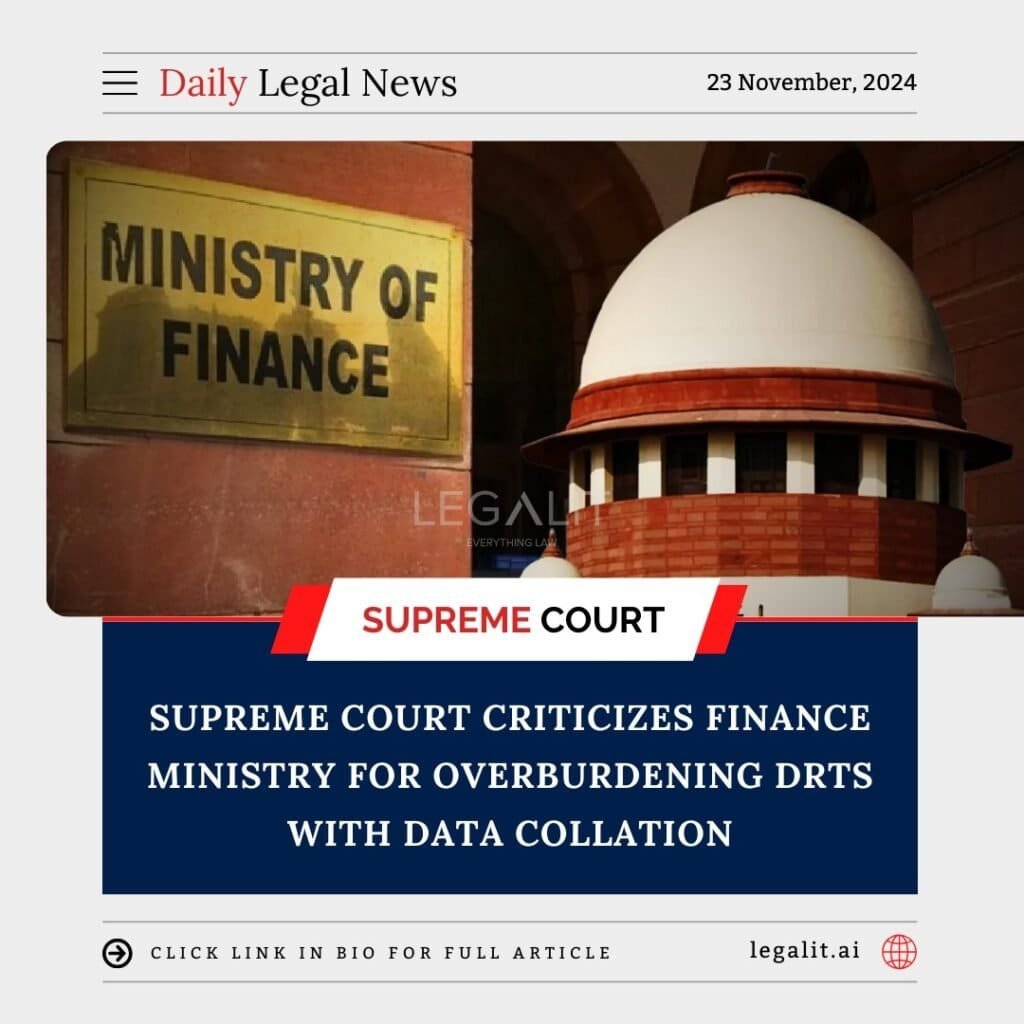
The Supreme Court of India has reprimanded the Finance Ministry for assigning Debt Recovery Tribunals (DRTs) the task of data collation, arguing that such administrative burdens divert tribunals from their primary function of resolving cases. The court emphasized that this practice undermines the purpose of the tribunals and delays justice in crucial financial disputes.
Background:
Debt Recovery Tribunals were established to expedite the recovery of debts owed to banks and financial institutions and reduce the backlog of cases in civil courts. However, concerns have grown over the increasing administrative tasks being assigned to DRTs, leaving them with less time to focus on their core judicial responsibilities.
Court’s Rationale:
During the hearing, the Supreme Court expressed discontent with the Finance Ministry for requiring DRTs to collect and compile data unrelated to their adjudicatory role. The court noted that such practices hamper the efficiency of the tribunals, which are already struggling with staff shortages and pending cases.
Existing Measures:
In the past, the judiciary has recommended reforms to improve the functioning of DRTs, including better infrastructure, the appointment of adequate personnel, and digitization of processes. However, administrative inefficiencies and non-judicial workloads continue to be recurring issues.
Conclusion:
The Supreme Court’s remarks serve as a warning to the Finance Ministry to respect the functional autonomy of DRTs. By addressing these administrative inefficiencies, the government can ensure that tribunals focus on their primary objective of delivering timely and effective justice in debt recovery cases. This intervention underscores the need to streamline tribunal operations for a more robust financial dispute resolution system.